RELATE
Problem Solving With Others
With your help, infants and toddlers can begin to learn the skills needed to solve problems with others
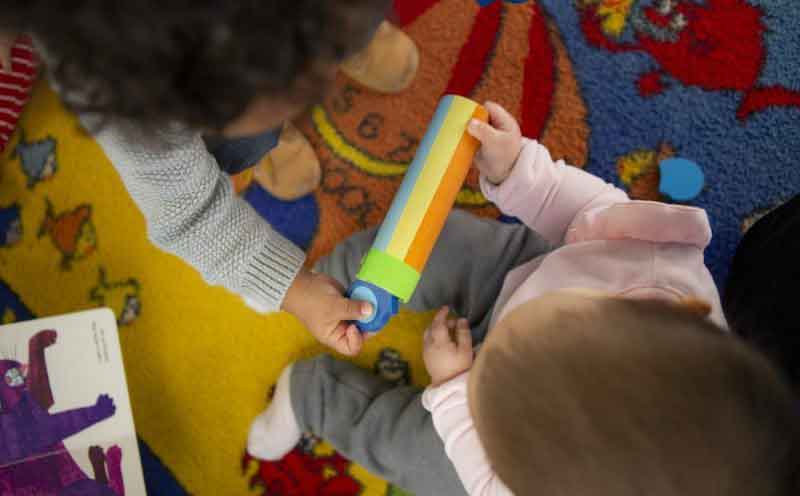
At a Glance
Most infants have a strong desire to engage with the people and objects around them. And, they rely on adults to guide and promote positive social interactions. As they develop, toddlers begin to show interest in playing beside their peers — and, later, with them. As they interact and learn the social rules of play, young children need help to develop social problem-solving skills. Educators can provide children with language to understand problems and feelings. They can also support children to find and accept fair solutions when issues arise.
What It Looks Like
A quick glance at how you can help infants and toddlers develop problem-solving skills
Help Children Solve Problems
When challenges arise during play, help children identify the problem, provide language they can use to communicate, and guide children to consider different possible solutions.
Encourage Fair Solutions
Encourage children to reflect on a problem and help model potential solutions that are fair for everyone. Notice how this educator proposes a way for two toddlers to share a toy they both want.
Practice Taking Turns
STRATEGY LIBRARY
Social Problem Solving With Toddlers
In this short series of lesson, you’ll learn three simple steps to help toddlers engaging in social problem solving.
With your support, young children can develop the social, emotional and language skills they need to engage in positive play experiences.
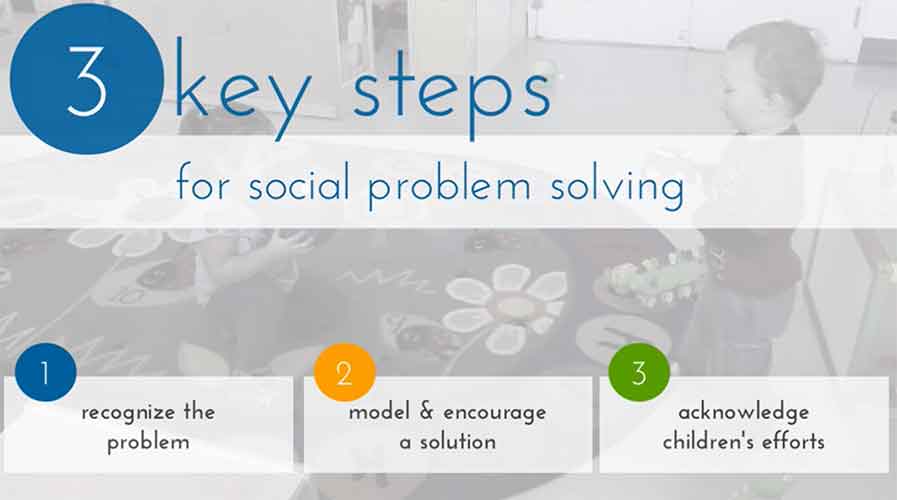
TRAUMA-INFORMED CARE
The Power of Play
A brief video from the Harvard Center on the Developing Child explores how play in early childhood can reduce stress (including trauma-related stress) and scaffold problem solving.
FAMILY CONNECTION
Families as a Resource
In this article from the Center for Responsive Schools, Carol Davis shares how educators can have conversations with families about problems that occur in the classroom.
PROBLEM SOLVING WITH OTHERS
Supporting Social Interactions
In their latest magazine issue, Cultivate Learning shares strategies to support children of different abilities to develop social skills.
PROBLEM SOLVING THROUGH BOOKS
That's (Not) Mine
Written by Anna Kang and illustrated by Christopher Weyant, this story highlights different ways to (not) solve problems with friends in a fun and engaging way.
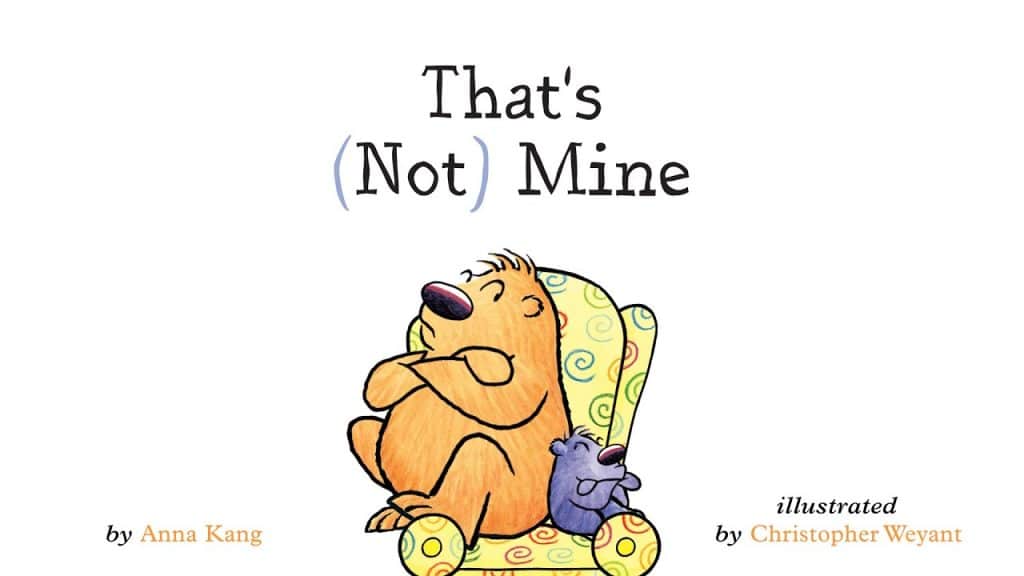
Activity Cards for Infant and Toddler Classrooms
Part of the STREAMin3 curriculum, these activity cards provide simple and fun ways you can prompt older infants and toddlers to collaborate and solve problems together

Dance Party
As children dance, problems will naturally arise. Narrate what the problem is, then suggest a solution.

Find a Solution
Present a problem with puppets or characters from a story. Use picture cards to help them find a solution.
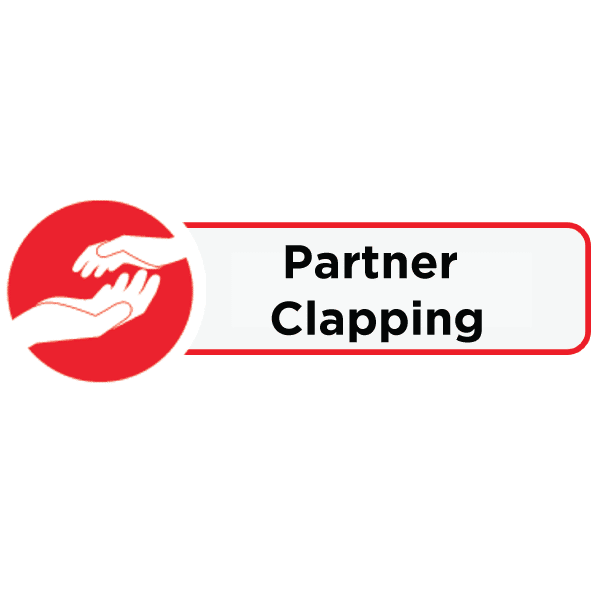
Partner Clapping
As children try this activity with partners, help them find solutions when things don't go quite right.
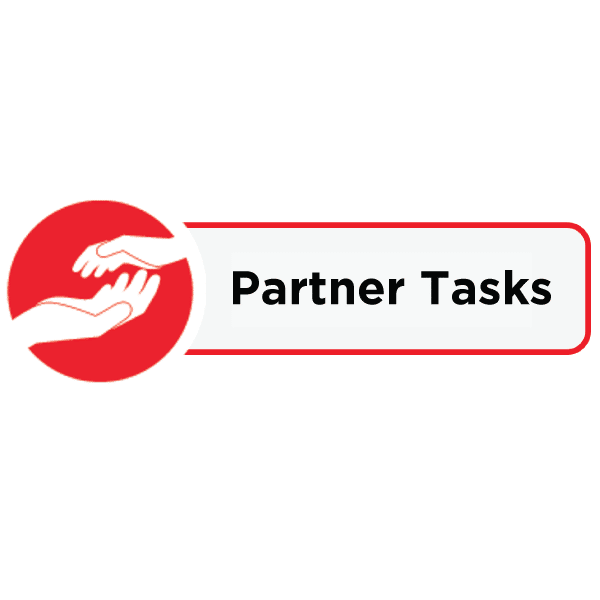
Get Our Resource Guide
Includes questions and activities to guide your use of the videos, book suggestions, and activity cards featured for each of the Core Skills

